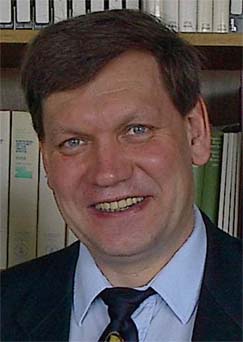The Biology of Human Longevity: Inflammation, Nutrition, and Aging in the Evolution of Lifespans
Discussion of a new book The Biology of Human Longevity by Caleb Finch
Greetings,
Here is a new book for discussion:
The Biology of Human Longevity:
Inflammation, Nutrition, and Aging in the Evolution of Lifespans
by Caleb E. Finch (Hardcover - Jul 17, 2007)
Here are my preliminary comments made after the first reading of this book:
See also some interesting excerpts from this book on the links between hibernation, caloric restriction, and life extension.
Have you seen this Book?
Post your comments below!:
Key words:
Aging, Biology of Human Longevity, Caleb Finch, Dietary Restriction, Human Longevity, Infections, Inflammation, Life Span, Nutrition
The abridged and edited version of this book review will be published by the end of year 2007 by this journal:
Quarterly Review of Biology
Home:
Longevity Science Blog
and
The Biology of Human Longevity: Inflammation, Nutrition, and Aging in the Evolution of Lifespans
Shorter weblink:
http://tinyurl.com/2rasut
To read further comments on this book, and to post your own thoughts, click here
.
Greetings,
Here is a new book for discussion:
The Biology of Human Longevity:
Inflammation, Nutrition, and Aging in the Evolution of Lifespans
by Caleb E. Finch (Hardcover - Jul 17, 2007)
Here are my preliminary comments made after the first reading of this book:
This is a monumental book, which reviews and discusses over 3,000 scientific publications on mechanisms of aging and longevity, with special emphasis on the role of inflammation in senescence and age-related degenerative diseases. The author is an internationally recognized leader in the field of biogerontology, and his volume could serve as a useful reference book for a wide readership including biomedical scientists, biogerontologists and clinicians in areas of vascular disease, diabetes, obesity, Alzheimer disease and other neurodegenerative diseases, genetics of aging and longevity, animal models of aging, anthropology and primatology, evolutionary biology, demography and epidemiology.
This volume is not a particularly easy reading, because of the complexity of the study topic with mixed and sometimes even controversial research findings, making it difficult to reach general conclusions. Fortunately the book is well illustrated with numerous tables and pictures (136 illustrations), which makes it much easier to follow.
The book starts with a discussion of the role of inflammation and oxidation in aging and chronic diseases (chapter 1) including an overview of experimental models for aging studies, description of inflammation process, as well as four types of damage (free radical damage, glyco-oxidation, chronic proliferation, and mechanical bystander effects). This chapter also discusses arterial aging and atherosclerosis, Alzheimer disease and vascular-related dementias, inflammation in obesity, and the processes of normal aging in the absence of specific diseases. The author makes a conclusion that in most chronic diseases of aging, the oxidative stress and inflammation are prominent; moreover, inflammatory changes are observed in many aging tissues even without specific pathology.
Other topics discussed in this book include the role of infections, inflammogens, and drugs in aging process (chapter 2); energy balance, inflammation, and aging (chapter 3); the role of nutrition and infection in the developmental influences on aging (chapter 4); genetics of aging and longevity (chapter 5); evolution of human life span with forecasts for the future (chapter 6).
In my opinion the most interesting part of this book is chapter 4, where the author provides an excellent overview of the Barker hypothesis of fetal origins of adult disease, and expands this hypothesis further to consider the role of early-life infections and inflammation in aging process later in life.
As for technical limitations of this volume, note that some publications cited in text of the book are missing in the Bibliography, and their authors are missing in the Name Index of cited studies too. For example, the following book is discussed three times at page 310:
Gavrilov, L. A., and N. S. Gavrilova. 1991. The Biology of Life Span: A Quantitative Approach. New York: Harwood Academic Publishers. http://tinyurl.com/2am4l3
It would be helpful if this reference be also mentioned in the Bibliography section, and the author's names be included in the Name Index for cited studies too. :)
Less important is a misspelling of a name, when this publication is cited for a second time at page 310 -- (GRavrilov and Gavrilova, 1991) instead of (Gavrilov and Gavrilova, 1991). Perhaps some of these minor suggestions may be useful in a future second print of this interesting book.
See also some interesting excerpts from this book on the links between hibernation, caloric restriction, and life extension.
Have you seen this Book?
Post your comments below!:
Key words:
Aging, Biology of Human Longevity, Caleb Finch, Dietary Restriction, Human Longevity, Infections, Inflammation, Life Span, Nutrition
The abridged and edited version of this book review will be published by the end of year 2007 by this journal:
Quarterly Review of Biology
Home:
Longevity Science Blog
and
The Biology of Human Longevity: Inflammation, Nutrition, and Aging in the Evolution of Lifespans
Shorter weblink:
http://tinyurl.com/2rasut
To read further comments on this book, and to post your own thoughts, click here
.
Labels: aging, Biology of Human Longevity, Caleb Finch, Dietary Restriction, human longevity, Infections, Inflammation, Life Span, Nutrition



0 Comments:
Post a Comment
<< Home